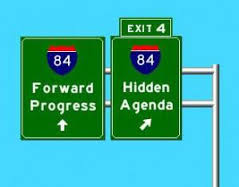 “Good leaders make people feel that they’re at the very heart of things, not at the periphery.” —Warren Bennis
“Good leaders make people feel that they’re at the very heart of things, not at the periphery.” —Warren Bennis
By Elizabeth Stincelli, DM
Without even realizing it, you may be making your employees feel small. Too many leaders let their ego, pride, and hidden agendas get in the way of doing what is best for the employees they are supposed to be serving. You can’t succeed alone and making employees feel small is one of the quickest ways to disengage and disenfranchise the very people who have the skills and abilities you need. Learn to recognize these four leadership behaviors that make your employees feel small.
Your ego is front and center
Your attitude, as a leader, has a huge impact on your employees. When your ego is front and center, your attitude will belittle employees making them feel small. Your ego screams that you identify yourself with power and superiority. It separates you from your employees rather than building community and cohesion.
You micromanage
Nothing appears to demonstrate a lack of trust more than micromanagement. When employees do not feel you have confidence in their abilities to do their jobs, it makes them feel small. But, if you are micromanaging, chances are it says more about you than it does about your employee’s abilities. One of the most important tasks of a leader is to make sure teams work well together and that employees feel engaged and valued. People need to feel competent and in control of their own work. Micromanagement undermines relationships, trust, engagement, performance, and loyalty.
You focus on their shortcomings
It’s important to employees that their work is significant and that they are making a meaningful contribution. When you focus on the shortcomings of your employees you make them feel that their contributions are not of value and this, in turn, makes them feel small. While it is not beneficial to overlook subpar performance, employees must see that you take as much notice of good performance as you do poor. As a leader, it is your responsibility to help employees overcome their shortcomings, not to continually rub their faces in them.
You have hidden agendas
When employees get the feeling that you are less than transparent and are operating based on hidden agendas, it tells them that you do not trust them enough to include them in the true agenda. This builds a culture of distrust that makes employees feel small. Hidden agendas make employees feel vulnerable and prevent the team from being able to work together toward shared goals. Your agenda should always be a shared agenda; hidden agendas never achieve positive results.
Start Making Employees Feel Valued
If you are ever going to succeed as a leader, you must stop making your employees feel small and start making them feel valued. Keep your ego out of it. Your employees need to see that your leadership is about them, not you. Stop micromanaging. Give you employees the training and support that they need and then let them do their jobs. Stop focusing on their shortcomings. Make sure that you acknowledge their strengths and help them to overcome their weaknesses. And, get rid of the hidden agendas. Develop a shared agenda where every employee is working toward the same goals. Your employees will perform to the level that your behavior tells them they should work at; stop making them feel small!
© 2016 Elizabeth Stincelli
Liz Stincelli is passionate about recognizing and inspiring the leader in each of us. She is the Founder of Stincelli Advisors where she focuses on helping organizations engage employees and improve organizational culture. Liz holds a Doctor of Management degree with an emphasis on organizational leadership.
Learn more about Liz by visiting her website, stincelliadvisors.com and connect with her on Twitter @infinitestin, Google+, and LinkedIn. You can contact her by email at stincelliadvisors@gmail.com.



